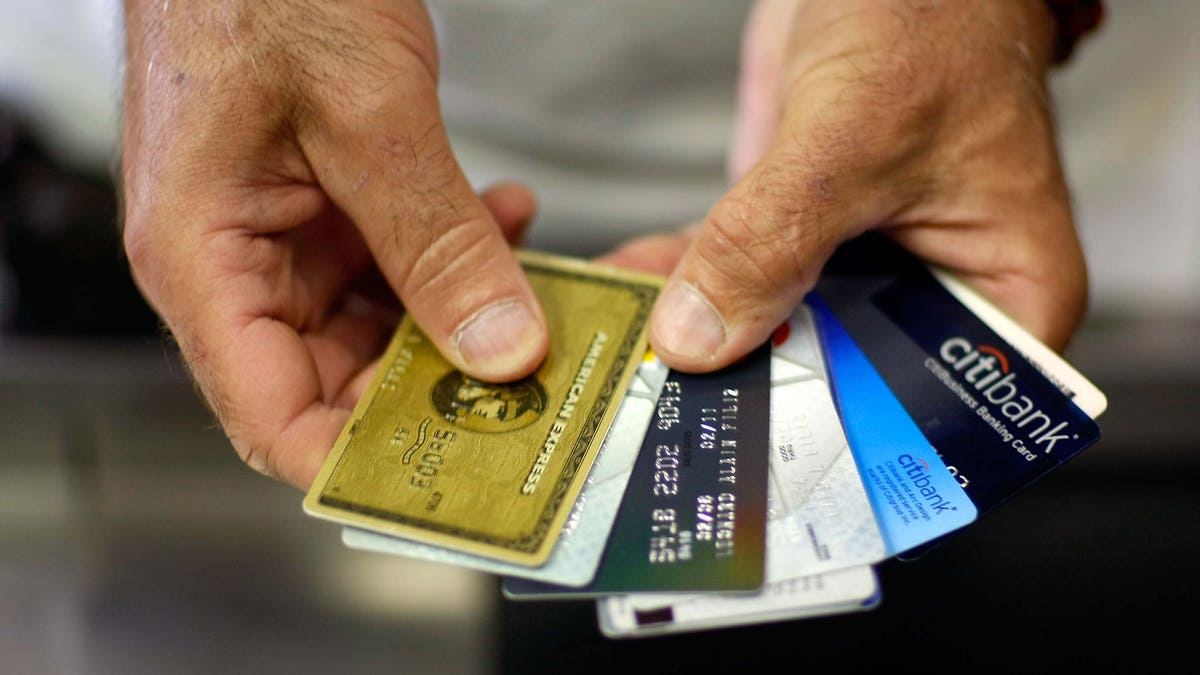
(Photo by Joe Raedle/Getty Images) (2009 Getty Images)
Americans may soon be able to start using credit cards during their visits to Cuba after Florida-based Stonegate Bank agreed to a financial relationship with a bank on the island this week.
Stonegate Bank and Cuba's Banco Internacional de Comercio have established the first correspondent banking relationship between the two countries in 54 years. The deal means businesses and bank customers can now facilitate payments and transactions directly, as opposed to having to go through banks in third countries.
The deal is meant to make it easier to do business on the island and is seen as an important first step in allowing the use of credit cards in Cuba. Stonegate bank is now in the position of becoming the first bank to allow Americans to use of their credit cards on the island, which could open the door to America’s other large banks to do so as well.
“Stonegate is the reconnaissance,” said John Kavulich, President of the U.S. Cuba Trade and Economic Council Inc. “They are providing the reconnaissance for everyone else in the business community. They are the first ones to get beaten up and shot at first.”
Americans have technically been allowed to use credit and debit cards on the island since President Barack Obama announced in December sweeping and historic steps in normalizing diplomatic relations with Cuba. The problem is, until now, American banks have been wary of doing business on the island, forcing American visitors to travel with pockets full of cash.
- Human rights abuses in Cuba will not slow normalization of diplomatic relations, U.S. says
- Dissed by Obama officials? Cuban dissidents say they were ignored during negotiations
- Republican-controlled Senate panel votes to lift travel ban to Cuba
- U.S. visitors to Havana find connections between 2 countries run long and deep
- Despite normalizing U.S. relations, Cuban athletes continue to defect
- Cuba’s Rich Percussion Scene Being Taken Over By Women
- 55 years of near-misses, might-have-beens: U.S.-Cuban relations since 1959
- Cuba’s Skateboarding Revolution
- Beyonce and Jay-Z Visit Cuba Evoking Bonnie & Clyde
- Cuba is training purebred horses for luxury market
- Cubans Head to US…Via Panama
Mastercard has allowed Americans to use their cards in Cuba as of March 1st, and American Express has said it will allow the use of their cards in the country as well – though it has not given a timeline.
Stonegate has not said whether they plan on authorizing credit card use on the island, but they do exclusively offer their customers Mastercard.
“This is another step in terms of normalizing commercial relations between the U.S. and Cuba,” David Seleski, president and CEO of Stonegate Bank. “The ability to move money easily between the two countries will only increase trade and benefit American companies wishing to do business in Cuba.”
American banks had been leery of doing business in Cuba. For one, until May Cuba was on the list of state sponsors of terrorism – which imposes substantial fines on financial institutions and makes it very risky for banks to do businesses with countries on that list. In the past, foreign banks have paid hundreds of millions of dollars in fines to the U.S. because of transactions with countries on the terror list.
“The banks were concerned the government will go after them for permitting the person for making expenditures in Cuba, and they should, have or had attempted to know or have some mechanism to stop these unauthorized charges,” Kavulich explained. “That’s what scares the banks.”
Cuba was removed from the list in May leaving, Iran, Sudan and Syria as the only nations on that list. Experts say Cuba’s removal from the list should ease many of the bank’s concerns.
The U.S. Treasury Department and President Barack Obama have begun encouraging and backing banks to make a move. Christopher Sabatini, founder and editor of the new policy website Latin America Goes Global and an adjunct professor at Columbia University, said at this point, “the ball is in the Cuban court.”
“They maintain very tight controls and they’ve been very, very slow to opening themselves up to investment and American banks because fear of the unknown and bureaucracy," Sabatini said.
For now, experts say Stonegate Bank is in the best position to allow Americans to make credit card transactions on the island, and some believe it could happen sooner than you think.
“You can see that happen in time for Secretary Kerry’s visit (on August 14th),” Kavulich said. “Wouldn’t it be something to see Secretary Kerry be the first to walk into a hotel in Cuba or a restaurant or a store and pay with a credit card? That will be a hell of a media event.”
